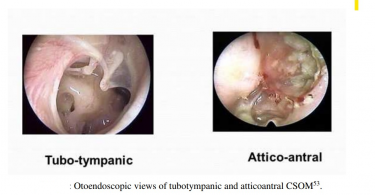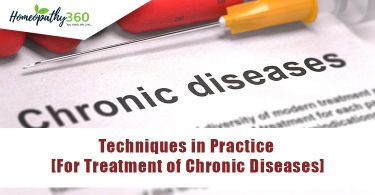Master Hahnemann has described the beneficial effects of homeopathic
treatment on psychiatric disorders. He claimed that the asylums of Europe
would be emptied should the superintendents agree to expose their
patients to homeopathic treatment. In the Organon of Medicine, Master Hahnemann has put down clearly the procedure to be adopted while treating
these mental disorders (aphorism 210 – aphorism 230). So accurate and reliable did he consider these aphorisms that he confidently told his followers to follow his methods and report the failures.
There are five broad classes of psychiatric disorders seen in clinical practice which a clinician ought to familiarise himself with. They are as follows:
Hahnemann considered mental diseases as one-sided diseases of the
chronic type affecting the whole psychosomatic entity which manifests
most of the symptoms on the mental aspect of human beings. All diseases
are psychosomatic in nature involving both the psychic and physical sphere
of the patient.
The view that no disease can be purely psychial or physical is now regarded
as a fact by medical men. Mind and body are two absolutely separate
entities but they form an indivisible whole, inseparable in their effect, but
distinguished as two for easy understanding.
They are both under the control of the same vital force. Hence, the derangement of the vital force, in the mental plane is observed through
visible alterations in the mind, disposition, temperament and intellect.
These mental symptoms thereby assume great importance and the totality
must include them to enable the homeopathic physician to select a simillimum.
1. Neurosis
These are diseases where the patient suffers from a variety of anxieties, depressions, pains and aches which have no organic basis, severe fears and compulsions, sleep disturbances, etc. In all these cases we find that the patient is able to communicate his troubles and retain a certain degree of understanding of what ails him. Hahnemann classified these in emotional diseases (aphorism 225 – aphorism 226). These illnesses have a considerable social and psychological component in their genesis and maintenance, and tend to undergo fluctuations with change of circumstances and with time. In many of these cases a basic constitutional
defect has been postulated which is either inborn or incorporated very early
in life due to the peculiar unfulfilled childhood experiences in the interpersonal context. We can term this as the underlying miasm (aphorism 227).
Approach
These cases need:
i. Detailed case taking to elicit characteristic features pertaining to the disease and patient along with accurate understanding of the precipitating (ailments from) and maintaining factors.
ii. Correct constitutional homeopathic prescription in appropriate
dose and at the appropriate time.
iii. Effort must be made to handle the environment of the patient or the
patient himself in order to reduce the impact of external stress.
iv. Yoga and other relaxation techniques will help to bring about quicker results.
2. Psychosis
These are more serious disorders viz., major depressions, mania and the
schizophrenias. The patient is far more disturbed and less in control over himself. Also, the schizophrenic disorders are not intelligible to us. These are included in corporeal diseases (aphorism 215). These illnesses have no cure in psychiatry and they pose a serious problem to the homeopathic physician due to their ‘one-sidedness’. The totality is difficult to erect and since the patients are on allopathic treatment here is difficulty while withdrawing these drugs.
These cases need :
i. Careful observation to spot the characteristic data as it emerges
to institute treatment early.
ii. There is danger of an uncontrollable acute excitement which forces
the family members to revert back to suppressive measures and then
the case is lost.
iii. Results are not very encouraging if we consider ‘cure’ statistics.
3. Psychosomatic
These are the illnesses which the homeopathic physician excels in treating.
The patients usually present a full range of symptoms–psychological, somatic and a variety of pathological changes. Mind plays an important
part in the genesis and maintenance of the illness. Many of the patients cooperate during case taking while some don’t. The problem here is sometimes advanced pathology and the physician needs to update his clinical knowledge. The results are normally satisfactory unless there is a one-sided dimension.
These cases need:
i. A careful anamnesis which gives a glimpse of the original unmodified picture of the disease when the characteristic data was present.
ii. A careful att ention to diet, exercise and modes of relaxation. This
is absolutely necessary for a good response.
iii. Most patients of this illness develop a family attitude which need
identifi cation by the physician and correction.
iv. ‘Physician heal thyself’ is true here than anywhere else.
4. Organic Psychosis
These are the mental disorders where the brain has been damaged in some
way and this has resulted in defi ciencies pertaining to the memory, intellect
and personality organization. The patients may not be aware of these difficulties and oft en deny them. If degeneration be the cause, precious
litt le can be done by way of cure. Palliation is the only answer and where
symptoms are present, relief can be noticeably good through symptomatic
treatment.
Where the ‘Aliments from’ is clear, for example, head injuries, a remarkable
amelioration of psychosis can be obtained with borderline conditions like,
hyperactivity in children, learning difficulties, etc.
5. Personality Disorders, Addictions, etc.
These are by far the most interactable conditions for a homeopathic physician. Social conditions appear to determine these responses and medicinal treatment in the absence of manipulation of the environment is bound to fail.
General Treatment in Psychiatric Disorders
1. The raging madness should be met by calm fearlessness and fi rm
resolution.
2. Painful and torturous methods should not be used to treat these
type of patients.
3. Everything the patient says should be heard in silence with proper concentration, so as to let the patient feel that he is being listened to.
4. Indecent behavior and fowl language are to be totally ignored.
5. Patients with destructive mental tendencies should be kept out reach of things which might arouse in them such tendencies.
6. Remove all kinds of disturbing influences on the patient’s mind as
far as possible.
7. Contradictions, rude correction, abrupt insults and shouting at the
patient should be totally avoided.
8. The doctor and the attendants should behave or pretend to believe
that the patient is not a case of mental derangement.
9. Finally, they should be treated with anti-psoric medicines to
bring about a complete and permanent cure.
Summary
Treatment of all psychiatric cases calls for a patient, painstaking and
detailed case taking in order to erect an evolutionary picture of the disease
evolution. This is only the beginning –matching the portrait of the disease is a difficult task and any answer without classical repertorization is likely to
mislead.
The administration of the medicine and careful assessment of the
follow-up response for remedy regulation is the next step. And last but not
the least, attention has to be given to precipitating and maintaining factors
of the illness.
The role of the physician as a friend, philosopher and guide is truly
tested in these circumstances. Only a truly unprejudiced observer (aphorism
6) will pass the test.
Author: Dr Vivek V. Kulkarni
Source: The Homoeopathic Heritage, January, 2010





